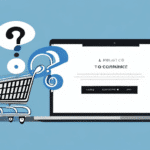A Guide for Mid-Market E-Commerce COOs: When to Hire a Director of E-Commerce
As a COO of a mid-market e-commerce business, you manage diverse teams, formulate strategies, and oversee operations—responsibilities that can become overwhelming, especially when juggling the e-commerce division. Hiring a Director of E-Commerce can be a pivotal move for your business's growth and efficiency. This guide explores the significance of this role, indicators for hiring, the ideal qualifications, and strategies to ensure you find the right candidate.
The Importance of a Director of E-Commerce for Mid-Market Businesses
Mid-market businesses are on a growth trajectory, and a Director of E-Commerce can accelerate this expansion by leading the e-commerce team and implementing revenue-generating initiatives. E-commerce remains a vital component of modern business operations, and a seasoned Director can set a strategic direction that maximizes online sales potential.
Additionally, a Director of E-Commerce ensures your business stays competitive by leveraging the latest industry trends and technologies. They analyze customer behavior and preferences, utilizing this data to optimize your website and enhance the overall customer experience. According to a 2023 eMarketer report, businesses that prioritize customer experience see a 10-15% increase in customer retention rates.
Signs Your Mid-Market E-Commerce Business Needs a Director of E-Commerce
Identifying the right time to hire a Director of E-Commerce is crucial. Look for the following signs:
- Scalability Challenges: Your current e-commerce setup can't handle increased business volume efficiently.
- Stagnant Growth: Despite increased website traffic, your e-commerce sales growth has plateaued.
- Lagging Behind Trends: Difficulty in keeping up with the latest industry trends and technologies.
- Expertise Gaps: Lack of in-house expertise in e-commerce operations or marketing strategies.
- Operational Inefficiencies: Struggles in managing inventory and fulfillment processes, leading to delays and customer dissatisfaction.
- Poor ROI: Limited return on investment from current e-commerce initiatives.
Addressing these challenges with a dedicated Director can streamline operations, enhance customer satisfaction, and improve profitability.
Understanding the Role of a Director of E-Commerce in Mid-Market Companies
The responsibilities of a Director of E-Commerce vary based on company needs, but generally include:
- Creating and executing a comprehensive online strategy to drive profitable growth.
- Developing pricing and promotional strategies to enhance sales.
- Overseeing the e-commerce P&L and aligning goals with overall business objectives.
- Recruiting and managing e-commerce staff across marketing, merchandising, and technology teams.
- Ensuring website functionality and a seamless user experience to drive conversions.
- Staying informed about industry trends and integrating innovative technologies.
Additional Responsibilities in Mid-Market Companies
- Collaborating with departments like sales and customer service for a unified customer experience.
- Managing relationships with third-party vendors such as payment processors and shipping providers.
- Hands-on tasks including managing email marketing campaigns, monitoring website analytics, and overseeing inventory management.
The Benefits of Hiring a Director of E-Commerce for Your Mid-Market Business
Bringing on a Director of E-Commerce offers numerous advantages, including:
- Enhanced Strategy: Improved e-commerce strategies leading to increased sales and profitability.
- Customer Focus: Enhanced customer experience fostering higher retention and loyalty.
- Innovation: Cultivating a culture of continuous improvement and innovation within the e-commerce team.
- Industry Insight: Staying abreast of industry trends and integrating new technologies.
- Operational Efficiency: Streamlined operations and reduced costs through efficient processes.
- Competitive Edge: Maintaining competitiveness in a rapidly evolving digital marketplace.
According to a study by McKinsey & Company, businesses that invest in leadership roles like a Director of E-Commerce report a 20% increase in online sales within the first year.
How to Find the Right Director of E-Commerce for Your Mid-Market Company
Finding the ideal Director of E-Commerce involves assessing both qualifications and cultural fit. Key qualities to seek include:
- Extensive experience in e-commerce operations and strategy development.
- Proven track record of delivering results and meeting KPIs.
- Strong leadership skills to inspire and motivate teams.
- Excellent communication and collaboration abilities.
- Deep understanding of customer behavior and market trends.
- Ability to stay informed about technological advancements.
Consider the following steps to ensure a successful hiring process:
- Define Clear Job Descriptions: Outline specific responsibilities and expectations.
- Leverage Multiple Recruitment Channels: Use professional networks, job boards, and recruitment agencies.
- Assess Cultural Fit: Ensure the candidate aligns with your company’s values and vision.
- Involve Key Stakeholders: Include team members in the interview process for diverse perspectives.
- Evaluate Soft Skills: Look for adaptability, problem-solving, and strategic thinking abilities.
For more insights on hiring strategies, refer to resources like Harvard Business Review.
Key Responsibilities of a Director of E-Commerce in Mid-Market Organizations
The Director of E-Commerce holds a pivotal role with responsibilities that typically include:
- Developing and implementing sales and growth strategies aligned with business goals.
- Managing a team of e-commerce professionals across marketing, merchandising, and technology.
- Ensuring website usability, functionality, and security.
- Analyzing sales trends, developing pricing strategies, and managing P&L.
- Optimizing new sales channels and evaluating marketing campaigns.
Collaborative and Strategic Tasks
- Collaborating with cross-functional teams for product launches and promotions.
- Managing relationships with third-party vendors for seamless service delivery.
- Staying updated with industry trends to keep the organization competitive.
- Maintaining strong relationships with key stakeholders, including customers and partners.
Building an Effective E-Commerce Team with a Director at the Helm
An effective e-commerce team is crucial for business success. A Director of E-Commerce can build and lead such a team by:
- Identifying and hiring top talent in the e-commerce space.
- Setting clear goals and objectives aligned with the business strategy.
- Establishing metrics to measure individual and team performance.
- Providing coaching and feedback for professional development.
- Fostering a culture of collaboration, creativity, and accountability.
Creating a Positive Work Environment
- Encouraging open communication and teamwork.
- Offering opportunities for learning and growth, such as conferences and training courses.
- Recognizing and rewarding contributions and achievements.
- Aligning team efforts with the company's mission and values to create a sense of purpose.
Staying Current with Industry Trends
- Attending industry events and conferences.
- Encouraging experimentation with new technologies and tools.
- Providing resources and training for ongoing learning.
- Collaborating with other departments to maintain strategic alignment.
Top Skills and Qualifications to Look for in a Director of E-Commerce for Mid-Market Businesses
When hiring a Director of E-Commerce, prioritize candidates who exhibit the following skills and qualifications:
- 5-10 years of experience in e-commerce with a proven track record of achieving KPIs.
- Expertise in developing and executing e-commerce strategies and optimizing revenue channels.
- Experience managing teams in dynamic, fast-paced environments.
- Innovative thinking to identify and leverage new opportunities and solutions.
- Analytical skills for evaluating performance data and making informed decisions.
- Strong communication and collaboration abilities across departments.
For detailed qualifications guidelines, refer to Society for Human Resource Management.
The ROI of Hiring a Director of E-Commerce for Your Mid-Market Company
Investing in a Director of E-Commerce can significantly impact your company’s financial performance. While initial costs include salary, benefits, and bonuses, the potential ROI justifies the investment. A proficient Director can:
- Enhance e-commerce strategies to boost sales and profitability.
- Improve customer retention and loyalty through a superior customer experience.
- Implement efficient processes to streamline operations and reduce costs.
- Provide insights into customer behavior to inform product development and marketing strategies.
By optimizing e-commerce activities and driving growth, a Director can accelerate your business’s expansion and profitability, making the investment worthwhile.
The Cost Implications and Financial Benefits of Hiring a Director of E-Commerce
The cost of hiring a Director of E-Commerce varies based on qualifications, experience, and geographic location. Factors influencing cost include:
- Candidate’s experience and expertise.
- Previous salary history.
- Location and market rates for similar roles.
Despite these costs, the long-term financial benefits are substantial. According to Forbes, businesses that invest in strategic e-commerce leadership experience a 25% increase in overall revenue within two years.
How to Train and Support Your New Director of E-Commerce for Optimal Results
Ensuring your new Director of E-Commerce thrives requires effective training and support. Consider the following approaches:
- Comprehensive Orientation: Introduce the company’s culture, policies, procedures, departmental goals, and expectations.
- Performance Management Plan: Establish clear success metrics and timelines for achieving goals.
- Professional Development: Offer opportunities such as coaching, training, and shadowing to enhance skills.
- Open-Door Policy: Encourage the Director to seek guidance and feedback as needed.
Continuous support and investment in your Director’s growth will ensure they can drive significant progress in your e-commerce initiatives.
Ultimately, hiring a Director of E-Commerce is a strategic investment in your business’s future. With the right leadership, you can achieve substantial growth in online sales, enhance customer experiences, and build a high-performing e-commerce team.






















